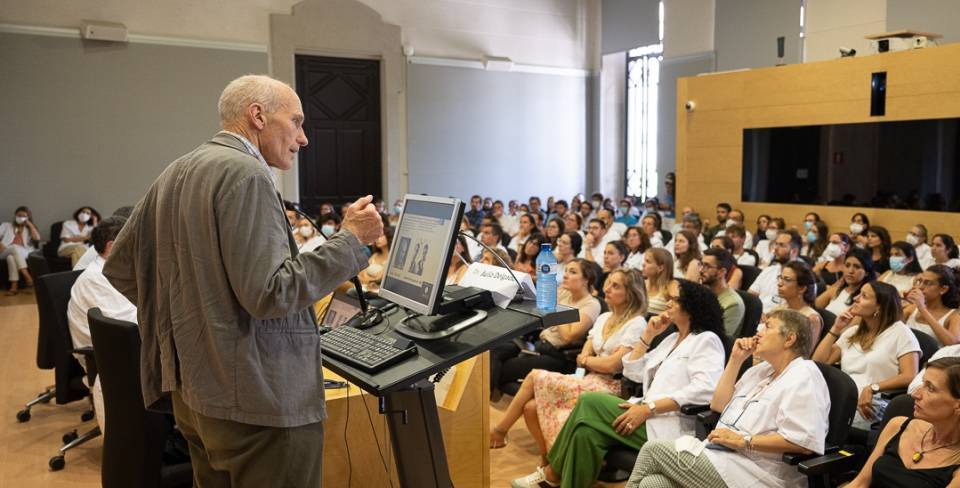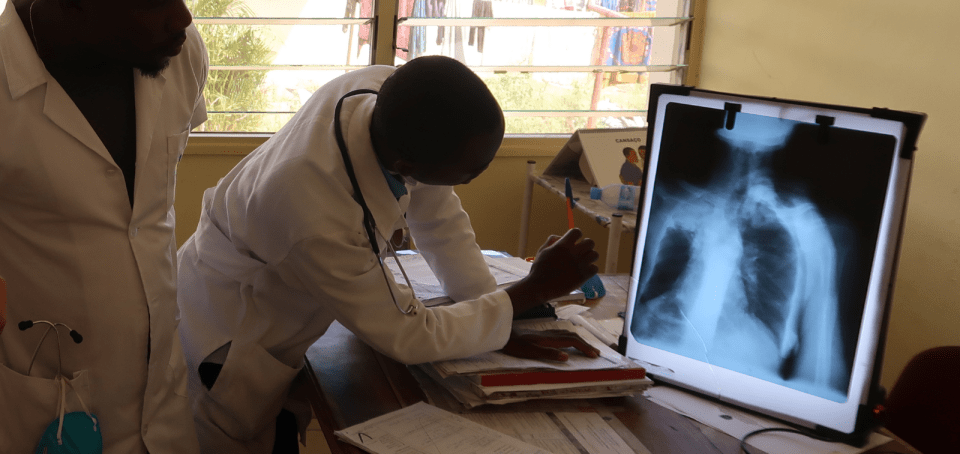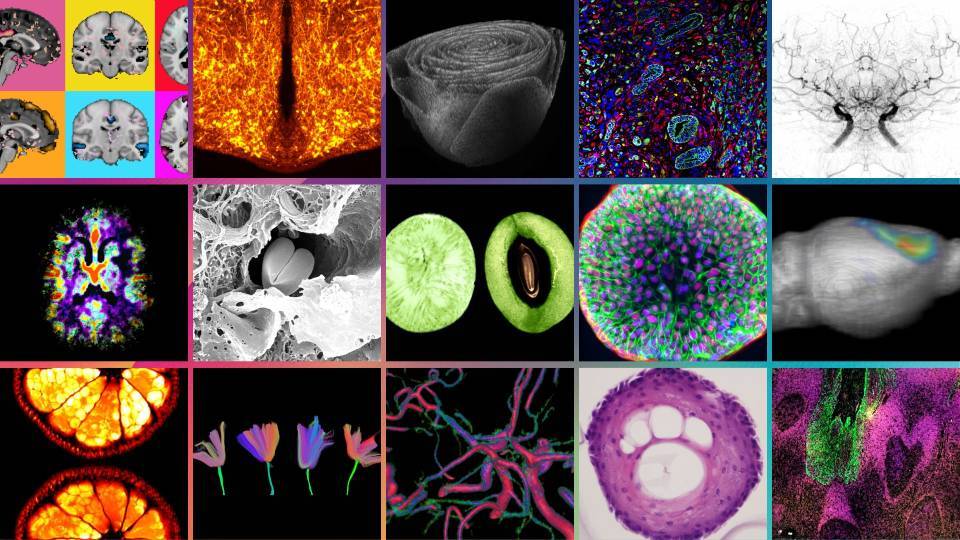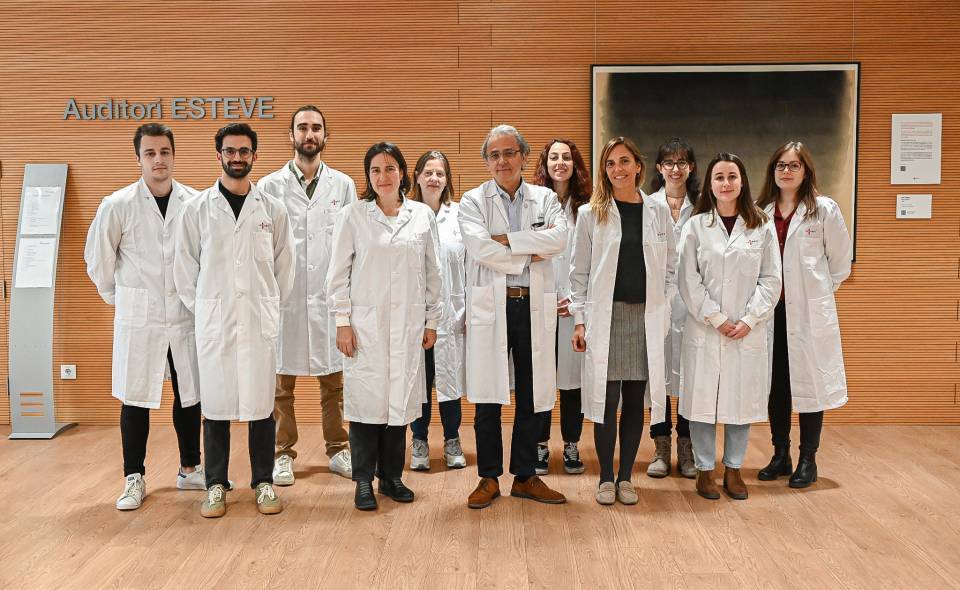On 9 September, Carl H. June, Richard W. Vague Professor at the University of Pennsylvania, joined the team of Manel Juan, head of the Hospital Clínic Immunology Department and leader of the IDIBAPS group Immunogenetics of the autoinflammatory response, to commemorate the 50th anniversary of the creation of ImmunoClínic. June is considered the father of immunotherapy to treat cancer because of his pioneering research in stimulating the immune system’s T cells to fight tumors.
The first therapeutic strategy against cancer in the United States using personalized immunotherapy was approved 5 years ago. Since then, this type of treatment has spread to several countries in Europe and around the world. “There is currently a considerable demand for CAR-T therapies to treat cancer, and meeting this demand is one of our biggest challenges. The process for obtaining the cells is long and requires highly qualified scientific personnel”, explained June. “Today, the average production time, from the time the patient gives the blood sample until the modified T cells are reinjected, is 22 days. At the University of Pennsylvania, however, we have developed a method for completing the process in just 3 days. We are also working on obtaining universal T cells using several donors, which would make it possible to treat several patients instead of the current individual strategy”.
Despite the success of CAR-T cells, it should be noted that all the approved therapies have been designed to combat blood cancers like leukemia, lymphoma, and multiple myeloma. “The problem is that 90% of cancers are solid tumors, like breast cancer, prostate cancer, and brain cancer. So, do CAR-T therapies work with this type of tumor?”, asks June. In animal models, the answer is yes. However, solid tumors are surrounded by cells and tissue that create a protective environment for the tumor and make it harder for the T cells to enter. “We can think of it as a castle surrounded by a moat, which creates a barrier and prevents invaders from reaching the castle. One of the strategies we are evaluating to overcome this obstacle is the use of viruses that can infect the cancer and breach the barrier of the microenvironment, in order to then administer the immunotherapy”.
June is optimistic and, looking ahead to the next 10 years, he sees this type of combined therapy being successful at combating solid tumors. He also believes in improving and automating the processes for manufacturing CAR-T cells in order to facilitate access to the treatment by patients.
“At the Hospital Clínic Immunology Department, we highlight the scientific and human leadership of Carl H. June, who, over recent years, has provided conceptual support to the projects we carry out in our CAR-T program”, said Juan. “June visited us 7 years ago and his presence served as a banner to bring together a group of top-tier international scientific speakers, which made it possible to create valuable collaborative networks”.




